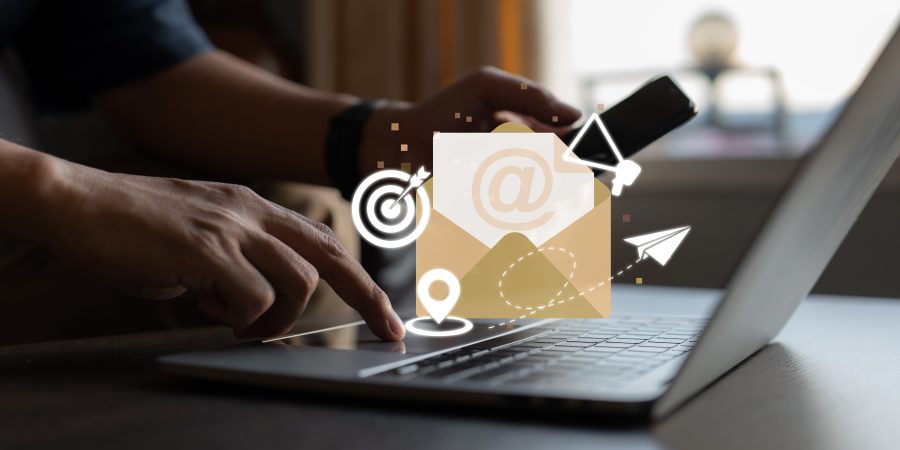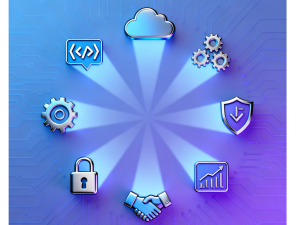Ask any tech learner today how they communicate, and you’ll probably hear:
“Slack, Discord, Teams—maybe a Notion comment if I’m feeling fancy.”
Email? That’s something your boss or your boss’s boss uses… right?
Not quite.
In 2025, email is making a quiet but powerful comeback—especially in the world of IT. And for new tech professionals trying to land roles, collaborate with hybrid teams, or communicate clearly with clients, mastering the inbox might just be your secret power skill.
Let’s explore why email still matters, what’s changing, and how learners can use it as a career advantage.
Slack Fatigue Is Real. Email Offers Focus.
We’ve all been there:
You open Slack.
Twelve new channels.
Mentions. Threads. Emojis. Bots.
Someone just asked a question… again… that was answered five messages ago.
It’s fast, but it’s also messy.
And while instant tools are great for quick chats, they’re not built for:
- Complex project updates
- Asynchronous communication across time zones
- Formal decision-making or client documentation
That’s where email is quietly stepping back in.
Email: Not Dead. Just Evolving.
We’re not saying ditch Slack or Teams—those tools aren’t going anywhere. But companies (especially in IT and SaaS) are starting to reframe email as a strategic skill, not an outdated one.
Here’s how it’s showing up in the wild:
- Project managers summarise weekly sprint progress via email
- DevOps engineers log incident retrospectives in shared inbox threads
- Recruiters send interview feedback via Outlook with tags and automations
- IT learners reach out to mentors, hiring managers, or open roles directly
And when done right? These emails cut through noise and leave a professional impression most chats can’t.
Real-Life Scenario: Why James Got Noticed
James, a cybersecurity bootcamp graduate, applied to dozens of roles. He joined job boards, LinkedIn groups, even Discord communities. Nothing was landing.
Then he wrote a cold email—simple, respectful, well-formatted—to a hiring manager at a local MSP. He included a link to a threat analysis project he built, and a thoughtful note about why he was interested.
The hiring manager replied:
“Thanks for reaching out—your email stood out because it was clear, well-written, and easy to forward to the team.”
One week later, James had an interview.
5 Inbox Skills Every Tech Learner Should Master
If you’re serious about standing out in tech, here’s where to level up:
1. Write Clear, Structured Emails
- Use bullet points for readability
- Start with context (“Quick update on X project”)
- End with clear actions (“Let me know by Friday”)
You’re not writing an essay—you’re writing like a human who respects people’s time.
2. Thread Management = Collaboration Superpower
Threads aren’t just for drama. In IT, email threads help:
- Track decisions over time
- Share links to project files
- Tag specific teammates using CC or @ features
Learn when to reply-all, when to CC, and when to start a fresh thread.
3. Use Inbox Tools Like a Pro
Gmail extensions like:
- Boomerang (for scheduling or follow-ups)
- Grammarly (for tone and clarity)
- Streak (for lightweight CRM tracking)
Or Outlook features like:
- Conditional rules
- Calendar integrations
- Email templates for recurring reports
Small tools. Big time savings.
4. Master the Art of the Cold Email
This isn’t about spam. It’s about building real connections.
Tips:
- Keep it short (under 150 words)
- Personalize it (“Saw your blog on Kubernetes”)
- Ask for advice, not a job (“Would love 15 mins to hear how you got into cloud security”)
People help those who show genuine curiosity—not desperation.
5. Respect Tone and Timing
- Match the tone of the team (formal? casual? emoji-friendly?)
- Avoid sending at odd hours unless expected
- Always follow up with kindness, not guilt-trips
Professional doesn’t mean robotic. It means thoughtful.
But Isn’t Email… Kind of Slow?
Yes—and that’s the point.
When everything is “ASAP,” thoughtful communication becomes rare—and valuable.
Email slows you down just enough to:
- Think clearly
- Document carefully
- Communicate intentionally
That’s why team leads, clients, and recruiters still lean on it.
What This Means for Learners
If you’re preparing for a tech career in 2025, consider these real perks of mastering email:
✅ You’ll stand out in a noisy applicant pool
✅ You’ll build a digital paper trail of your learning and progress
✅ You’ll work better with managers, clients, and remote teams
✅ You’ll grow a reputation for clarity and reliability—fast
It’s not about loving email. It’s about knowing when it works better than everything else.
Real Learner Tip: Build Your Personal Email Template Set
Create a few templates you can reuse for:
- Reaching out to hiring managers
- Following up after interviews
- Weekly study progress reports to your mentor
- Thank-you notes after guest lectures or webinars
Bonus: You can adapt these into messages for LinkedIn, Discord, or even Slack DMs.
Final Thoughts: Email Isn’t Dead—It’s Differentiating
In a world of instant everything, those who pause to communicate clearly will rise faster.
Email might not be the coolest tool in your digital toolbox—but it could be one of the most powerful. Especially if you’re navigating hybrid teams, working across time zones, or just trying to make a memorable first impression.





